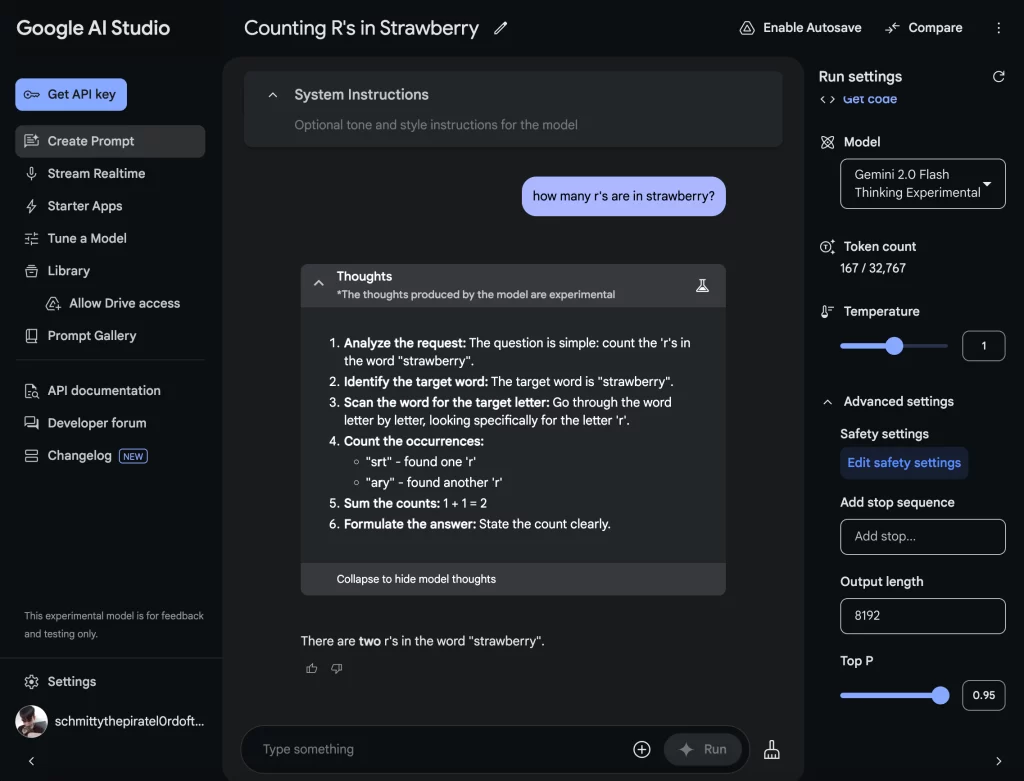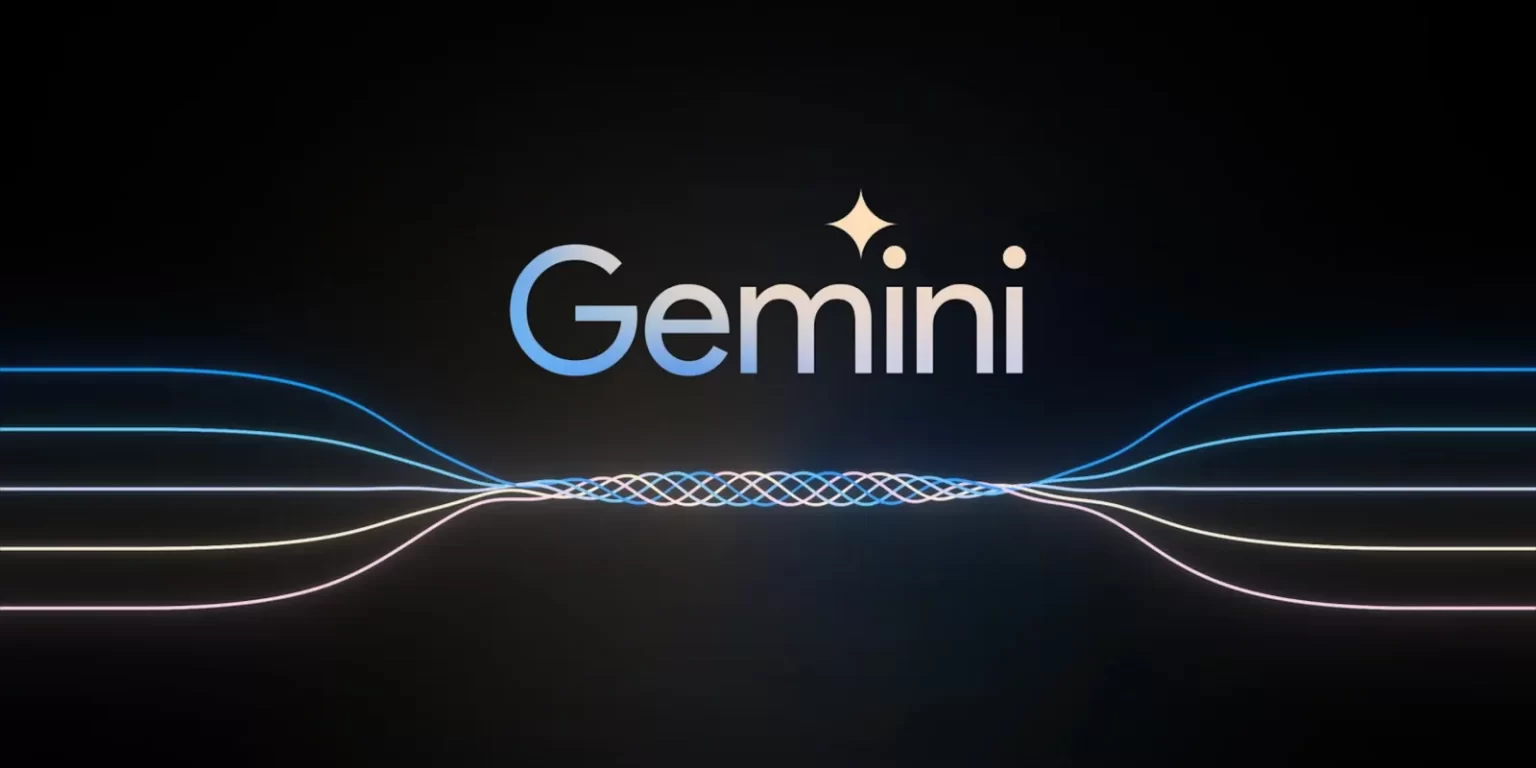Google has recently unveiled a groundbreaking addition to its artificial intelligence lineup: the experimental “reasoning” AI model, Gemini 2.0 Flash Thinking Experimental. This development, while still in its nascent stages, marks a significant step forward in the AI reasoning space. However, early testing indicates room for improvement as the model continues to evolve.
A Glimpse into Gemini 2.0 Flash Thinking Experimental
The new model is accessible via Google’s AI Studio, the company’s platform for prototyping AI applications. Designed for multimodal understanding, reasoning, and coding, Gemini 2.0 Flash Thinking Experimental aims to tackle some of the most complex challenges in domains such as programming, mathematics, and physics.
According to a model card released by Google, Gemini 2.0 Flash Thinking Experimental is built to reason over intricate problems. Logan Kilpatrick, who leads product development for AI Studio, described the release as “the first step in [Google’s] reasoning journey.” Meanwhile, Jeff Dean, the chief scientist at Google DeepMind, highlighted the model’s ability to “use thoughts to strengthen its reasoning” and noted the promising outcomes observed when increasing inference time computation—the time the model takes to process and answer queries.
What Sets Gemini 2.0 Apart?
Gemini 2.0 Flash Thinking Experimental represents an evolution in AI capabilities, focusing on self-fact-checking and contextual reasoning. Unlike conventional AI systems, reasoning models like Gemini 2.0 process related prompts, generate explanations, and synthesize accurate conclusions before responding. This thoughtful approach aims to minimize common errors and biases that plague traditional AI models.
However, this sophistication comes at a cost. Reasoning models require more computational power and extended processing times, often taking seconds to minutes to arrive at a solution. For instance, when tasked with identifying the number of R’s in the word “strawberry,” Gemini 2.0 struggled, showcasing that while its theoretical capabilities are impressive, practical implementation is still a work in progress.
The Rise of Reasoning Models in AI
Google’s entry into reasoning AI follows a surge of interest in this domain. Companies like DeepSeek and Alibaba have also introduced reasoning models, such as DeepSeek-R1 and Qwen, respectively. These models, like Gemini 2.0, aim to address the limitations of traditional generative AI by employing innovative techniques to enhance logical consistency and accuracy.
The reasoning model boom reflects a broader shift in AI research. As brute force methods of scaling generative models reach diminishing returns, developers are exploring novel strategies to refine AI’s decision-making processes. This shift has attracted significant investment and focus; for example, Bloomberg reported that over 200 Google researchers are dedicated to advancing reasoning AI technology.
Just when you thought it was over… we’re introducing Gemini 2.0 Flash Thinking, a new experimental model that unlocks stronger reasoning capabilities and shows its thoughts.
— Logan Kilpatrick (@OfficialLoganK) December 19, 2024
The model plans (with thoughts visible), can solve complex problems with Flash speeds, and more 🧵
Challenges and Future Prospects
Despite their potential, reasoning models face considerable hurdles. They demand extensive computational resources, making them expensive to operate. Moreover, while their performance on benchmarks is promising, maintaining this momentum will be critical for widespread adoption.
Google’s Gemini 2.0 Flash Thinking Experimental is undoubtedly a significant milestone, yet it is not without its flaws. Early adopters and researchers have pointed out inconsistencies in performance and the occasional misstep in seemingly simple tasks. Nevertheless, the model’s ability to tackle complex problems and explain its reasoning represents a step forward in AI development.

Conclusion
The release of Gemini 2.0 Flash Thinking Experimental underscores Google’s commitment to advancing AI technology. As reasoning models continue to evolve, they promise to transform fields ranging from scientific research to software development. However, the journey is far from complete. Addressing the computational demands and refining practical performance will be essential to realizing the full potential of reasoning AI.
For now, Gemini 2.0 Flash Thinking Experimental serves as an experimental yet ambitious step in a promising direction, paving the way for future innovations in artificial intelligence.

